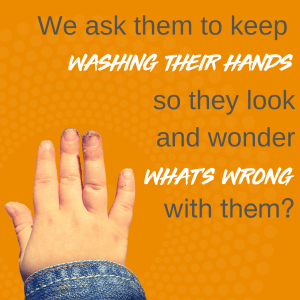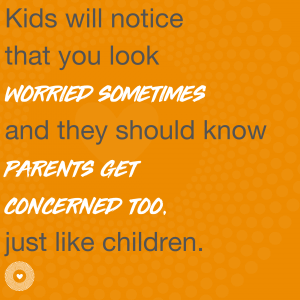
The best thing to tell your kids
This article is written by Dr Joe Tucci, CEO of the Australian Childhood Foundation. An earlier version appeared in the Herald Sun as an Op-Ed on the 22 March 2019.
It has been a topsy turvy year so far. Our children were really scared during the bushfires. They saw nature burning, they felt the smoke in their eyes and smelt it in the air.
It was tangible and real.
But COVID-19 brings a different kind of fear.
As the bush burnt, they saw adults come together to fight the fires. They saw firefighters in trucks. They saw planes dropping water. They saw the army and navy save families like their own.
People stopped their cars to pick up hurt koalas and nurse them. And people gave a moment to come from around the world to help.
They felt like they were surrounded by heroes. People helped each other and our children knew that the fires would end eventually.
But that is not what children have seen, and are still seeing with the virus. They are faced with a sickness that no one can see or smell or hear. They are told that it is like having a cold but that it makes a lot of people really sick. Old people, like children’s nannas and pops, can die from it.
Every morning when they wake up, they hear the news that more people are sick and more people have died in more places all around the world – in Italy, China, Iran, and all around Australia. We thought we may have past the worst of it, but with this second lockdown in Melbourne, these fears have been reawakened, perhaps even magnified with the realisation that we cannot return to normal. The virus is still here.
It has disrupted the footy. It has stopped a lot of their sport. It closed their schools, which reopened, to only be closed again in some places.
Children are not sure if the sickness or the fighting is worse as they watch (and again watch) shelves being stripped of things they have always had access to.
 We ask them to keep washing their hands, so they look and wonder what’s wrong with them.
We ask them to keep washing their hands, so they look and wonder what’s wrong with them.
They have so many questions, but there don’t seem to be many answers, and it feels like it will never stop. The situation feels like it is getting worse.
Instead of coming together, some people are being made to stay alone in their homes.
Doctors are worried. Their teachers are preoccupied. When they look into the eyes of their parents, they see uncertainty and confusion.
Worst of all, no one is noticing them. No one seems to see how unsettled they are.
Of course, it is one of the hardest moments for adults. There is so much to absorb. Everything seems to be changing so quickly, all the time. A virus that was not known to anyone at the start of this year has now tipped the world upside down.
But we need to be honest with our children. It is a sickness like the cold. Some people will get it.
Maybe someone in our family might get sick. We are all a bit scared but that’s a sign that we are concentrating on being safe.
Tell your kids that there are good people like doctors and scientists who know what to do, who are helping to figure out this puzzle.
Tell them that, yes, some people were fighting in the shops. But there are many people who care about each other, too.
Maybe they can give some toilet paper to a friend of a neighbour. Encourage them to check in with any elderly neighbours or family members.
Share activities that help you all feel connected, feel grounded. Show them how to make pancakes from scratch. There are eggs and flour and you can show them how pancakes were made when you were their age.
For those in Melbourne, where I am, we can reassure them that there is still lots of food in the supermarkets. There are apples. There are tomatoes. There is even lots of broccoli.
Kids need to be sure we won’t run out of food.
You can draw on the knowledge and experience that we’ve done this before, so we can do it again.
 Tell them there have been sicknesses like this before and they have stopped. Scientists from around the world are helping each other and we can solve even big problems when we trust each other and work together. It has always been like that.
Tell them there have been sicknesses like this before and they have stopped. Scientists from around the world are helping each other and we can solve even big problems when we trust each other and work together. It has always been like that.
Kids will notice that you look worried sometimes and they should know that parents get concerned too, just like children. But they’ll feel better if they know that you’re all right.
And reassure them that your pets will be fine.
Tell them that even if school stops again, it will start again. And this sickness will end one day.
Those are the kind of conversations that will help children to cope. They need to hear it and be reassured as many times as we can find it in ourselves to repeat it to them
Children will believe us. They want to believe us.
Now, all we have to do is believe it ourselves.
